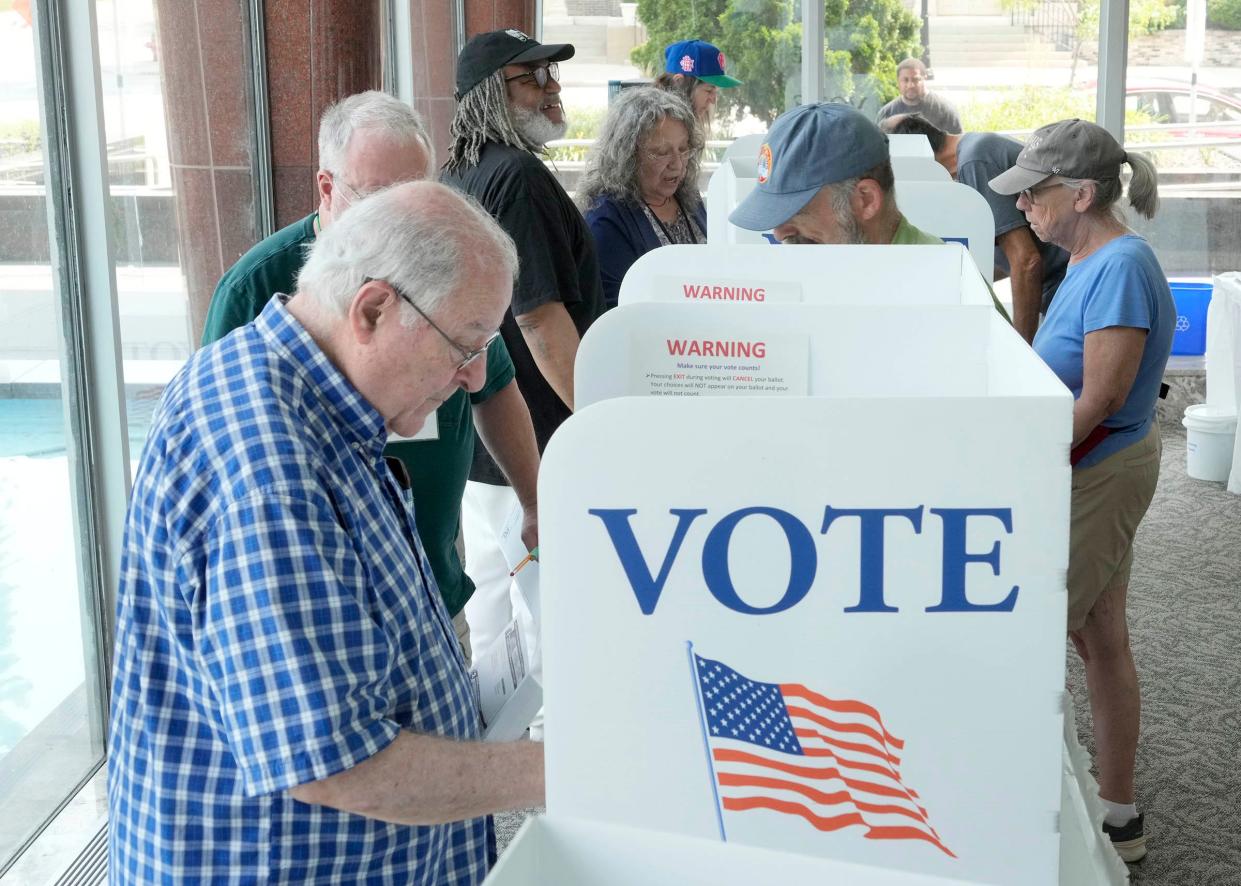Ballot questions threaten nature conservation efforts. Federal dollars could be delayed.

On the Aug. 13 election ballot, Wisconsin voters face a crucial decision that could shape the future of land and water conservation efforts for generations. Some voters may not realize that two proposed constitutional amendments (State Questions 1 and 2) will be on the ballot. These amendments threaten the vital federal investments that have long supported Wisconsin's conservation efforts, potentially undermining decades of progress. The Nature Conservancy encourages voters to learn more about the ballot measures and vote no.
I’ve worked for the conservancy for 24 years, meeting people from all around the state and from all walks of life who care deeply about conserving nature and protecting our shared lands and waters. Durable, lasting conservation relies on public-private partnerships: individuals, families, and businesses coming together with local, state, and federal leaders – and the funding these partnerships provide – to get things done and ensure that our most vulnerable natural places remain healthy and thriving.
As an organization, we view the state ballot measures as a direct threat to the longstanding tradition of private philanthropy paired with public funding that has made Wisconsin’s conservation successes the envy of neighboring states and the economic engine of our recreation, tourism, and timber industries.
Vote yes: Don't believe the fearmongering surrounding referendum questions
If passed, Questions 1 and 2 would pose a significant threat to our ability to do vital conservation work and impede or stop the progress of many other community-based conservation projects across the state. A disruption to federal funding could also get in the way of water-friendly regenerative agriculture practices and the implementation of critical renewable energy projects. Federal funding makes all of these things possible, and the two proposed amendments have the potential to derail decades of progress.
Passage of amendments could mean delay in disaster assistance
It’s not just conservation on the line either. Questions 1 and 2 also threaten funding for other issues voters care about. For example, a delay or disruption to federal funding could prevent communities and businesses from getting urgent help after natural disasters–a glaring concern given the state’s recent historic flooding and storm events. When funds are delayed, infrastructure crumbles, and local economies and livelihoods suffer. No one wins when critical funds are kept from the communities that need them most.
It's worth noting that as a science-based, collaborative, and non-partisan organization, speaking up on a statewide ballot initiative like this feels somewhat out of character for us. We are proud of our track record of working with leaders on both sides of the aisle – we’ve had a lot of practice over 64 years, but we know we can’t stay quiet on this issue. Voting no is critical to our mission and to the health of the shared natural resources at the heart of our communities and state identity.
Confusing ballot questions: If they pass, expect more gridlock in Madison.
Questions 1 and 2 are asking voters to fix a system that simply isn’t broken. Our current system has worked well for 85 years, and we don’t need additional legislative barriers getting in the way when our natural resources and communities are most vulnerable. Happily, you, the voters, have a chance to speak up this summer. Use your outside voice to tell everyone you know about this important issue and vote no on both questions. Together, we can ensure the brightest future for our shared natural resources and communities.
Elizabeth Koehler is the state director of The Nature Conservancy in Wisconsin.
This article originally appeared on Milwaukee Journal Sentinel: Voters go to the polls for August primary election in Wisconsin
Solve the daily Crossword

